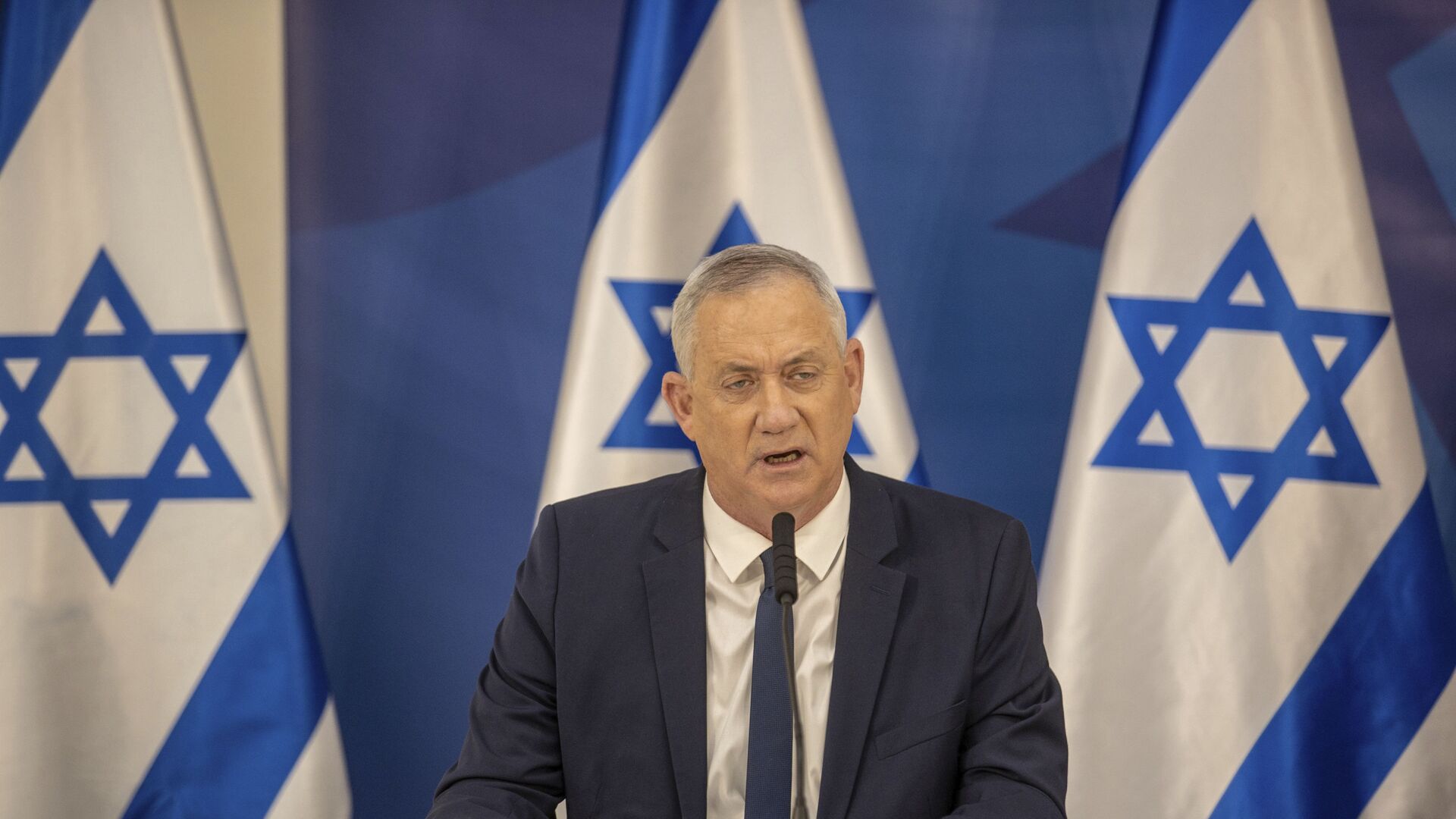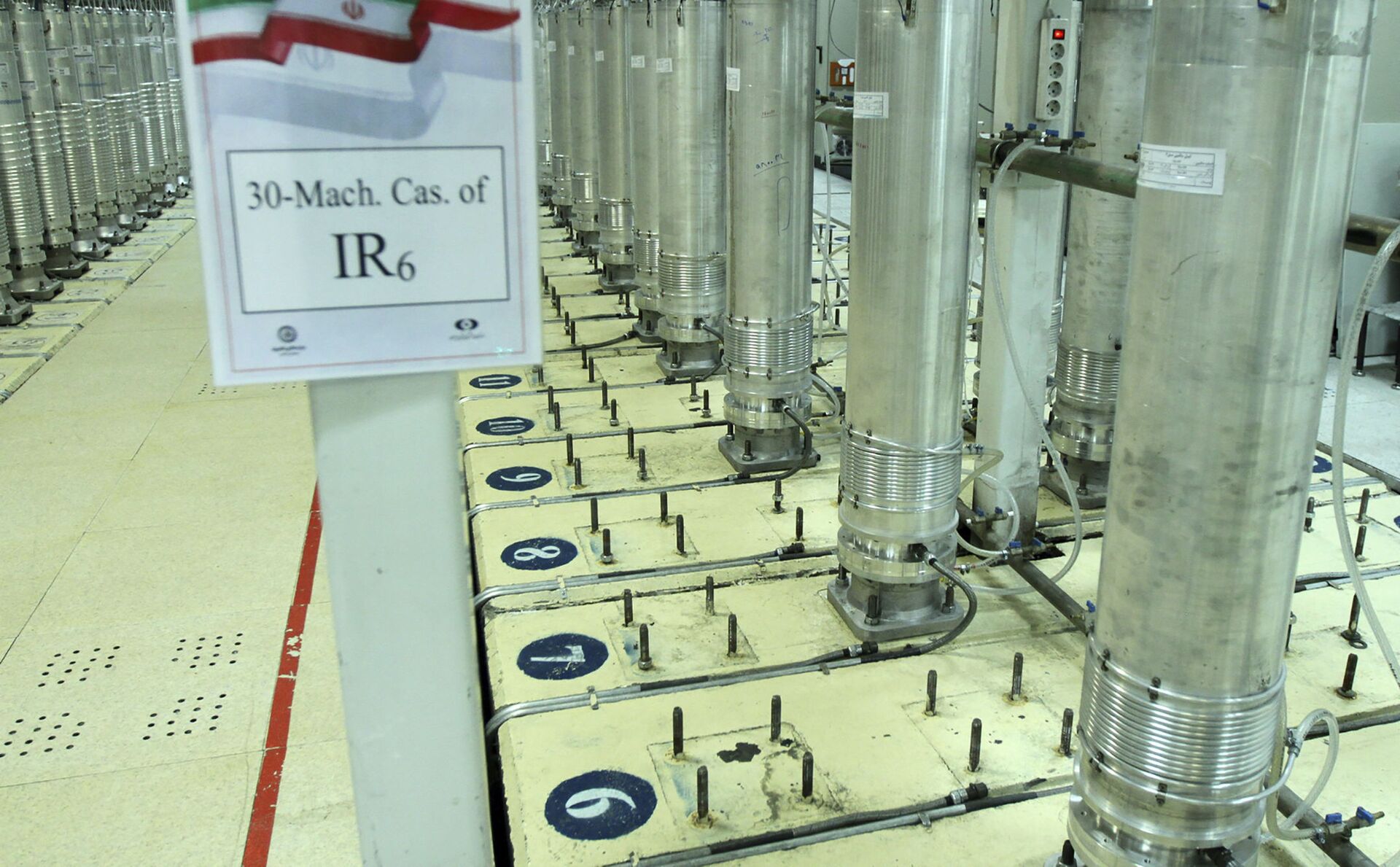Gantz: Israel Could Accept Return to JCPOA if US Has ‘Plan B’ for Iran’s Nuclear Program
23:37 GMT 17.09.2021 (Updated: 23:38 GMT 17.09.2021)

© AP Photo / Tal Shahar
Subscribe
Israel has repeatedly claimed for years that Iran was close to finishing a nuclear weapon, saying that such a weapon would pose a threat to the country and threatening to take military action to stop it from happening. Despite their claims, Iran still has no such weapon and has forsworn their use alongside other weapons of mass destruction.
Israeli Foreign Minister Benny Gantz recently told Foreign Policy that Israel was willing to accept Iran’s return to the 2015 nuclear deal if the Biden administration demonstrated it had a “viable US-led Plan B” in case the negotiations fail. Jerusalem has previously opposed talks on restoring the deal, which it has called a “historic mistake” since it was first signed.
“The current US approach of putting the Iran nuclear program back in a box, I’d accept that,” Gantz told the Washington, DC-based publication in an interview published on Tuesday in reference to the ongoing talks to revive the Joint Comprehensive Plan of Action (JCPOA).
However, he added that he would want to see a “viable US-led plan B” that includes economic sanctions in case the negotiations fall through. He also made an oblique reference to Israel’s repeated threats to conduct a unilateral military strike against Iranian nuclear facilities, which he termed “plan C.”
“Israel has no ability to lead a real plan B, we can’t put together an international economic sanctions regime. This has to be led by the US,” Gantz told the magazine, adding that “Iran has to fear that the US and its partners are serious.”
Iran has already languished under “maximum pressure” economic sanctions put in place by the Trump administration, which claimed in 2018 that Iran was secretly breaching the 2015 deal, leading to then-US President Donald Trump unilaterally pulling the US out of it. The deal had removed the sanctions in exchange for Iran accepting strict limitations on the purity of its refined uranium and the maximum weight of the radioactive metal it could store.
Tehran has denied it broke the deal, but since the sanctions returned, it has steadily stepped away from its commitments made under the deal, including reducing inspections by the International Atomic Energy Agency and increasing the purity of uranium it’s producing.
Israeli Prime Minister Naftali Bennett, head of the coalition government that unseated longtime leader Benjamin Netanyahu in June, criticized the former administration for its intransigent approach to Iran, which he said had failed.
“Israel inherited a situation in which Iran is at the most advanced point ever in its race to the bomb,” Bennett told Israel’s Channel 12 on Tuesday. “The gap between [Netanyahu’s] rhetoric and speeches and actions is very big.”
Netanyahu, in turn, told the Jerusalem Post that Bennett’s move “a dangerous mistake.”
Two months before leaving office, Netanyahu said the JCPOA was “a deal with Iran that threatens us with annihilation.”

This photo released on Tuesday, Nov. 5, 2019, by the Atomic Energy Organization of Iran shows centrifuge machines in Natanz uranium enrichment facility in central Iran. Iran announced on Monday that had started gas injection into a 30-machine cascade of advanced IR-6 centrifuges in Natanz complex
© AP Photo / Atomic Energy Organization of Iran
While Israeli intelligence has claimed for years that Iran was just weeks or months away from developing a nuclear weapon, Tehran has repeatedly rejected the destructive weapons. In 2010, Ayatollah Ali Khamenei issued a fatwa, ruling that nuclear and chemical weapons - the latter of which Iran was targeted with by Iraq during the 1980-88 war - go against the teachings of Islam.
Bennett has also been very critical of the JCPOA talks in Vienna, though, denouncing “the naïve expectation that Iran will be prepared to change its path via negotiations” in comments just last week. His comments came in response to an IAEA report that Iran wasn’t giving agency inspectors access to security cameras at its nuclear facilities. While Tehran relented just days later, the IAEA also noted that an attack in June on the Karaj research facility believed to have been carried out by Israel’s Mossad intelligence agency destroyed IAEA equipment at the facility, including a camera.
The IAEA also noted the purity of Iran’s highly enriched uranium had increased to 60%, of which the Islamic Republic has 10 kilograms. According to the Lawrence Livermore National Laboratory, the US research center responsible for designing many of the Pentagon’s nuclear weapons, a weapon using uranium with a purity of less than 90% “would not be practicable to design” as it would be prohibitively large to be used as a weapon.
Mossad is also widely blamed for a number of espionage operations against Iran’s nuclear program in recent years, including the Karaj attack, as well as sabotage operations at Natanz and other facilities, and even the brazen daylight assassination of Mohsen Fakhrizadeh, a leading Iranian nuclear scientist, on a highway outside Tehran. The Stuxnet virus, which caused 10% of the centrifuges at Natanz to spin out of control until they fractured in 2009, is also believed to have been created by Israel and the US.
Apart from espionage, Israel has also threatened military action against Iranian nuclear facilities. Their threats are bolstered by a history of such action, including the infamous 1981 bombing of Iraq’s Osirak facility, an unfinished nuclear power plant Israel feared would be used to help Iraqi leader Saddam Hussein’s nuclear program. Ironically, Iran secretly helped Israel plan the attack, as they were at war with Iraq and equally feared an Iraqi nuclear weapon.


